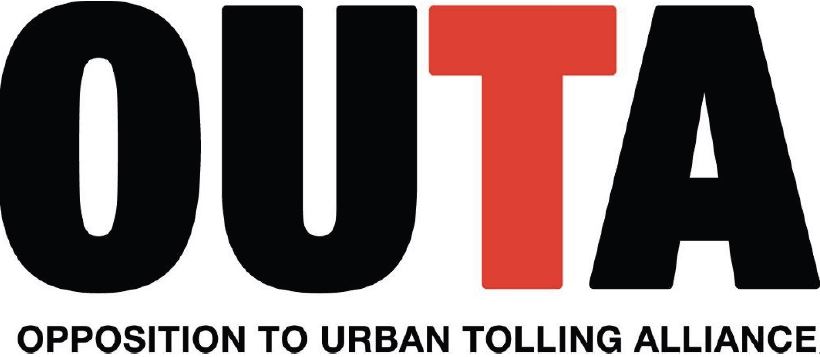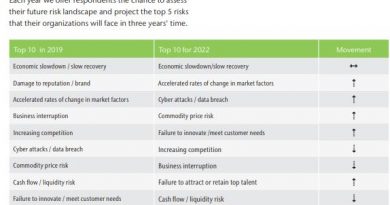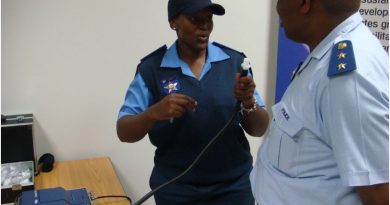An eToll Update & Overview by OUTA: Why is there a challenge to eTolling?
In August 2012, Sanral argued in the Constitutional Court that it was ready and would launch eTolling within two weeks of OUTA’s temporary interdict being set aside, whilst the full court review (which is still in progress), continued. A year has passed since Sanral was granted their request and they have still not launched. In fact, it is now two and a half years after Sanral’s initial planned launch date in April 2011 and the questions begging an answer are; why has eTolling not been launched as yet and are they able to do so?
Today, Gauteng’s eTolling plan has become a ‘policy in limbo’, a situation which arises when the authorities are unable to implement the process, due to strong and complex set of forces that make it difficult or near impossible for the policy to be applied. In this specific case of the GFIP eToll plan, the issues of irrationality and unworkability (administrative complexity and difficulties of enforcement) have plagued its ability to launch, all of which are the result of Sanral’s own doing.
Reasons of irrationality of GFIP eTolls:-‐
• The Electronic Tolling Company JV (ETC) consortium (85% effectively owned by Europe based Kapsch TrafficCom) was awarded the toll management contract at a cost of R8,4bn for the operational and toll collection process over the first five year period (including VAT).
• Andre Laux of Austria’s Kapsch TrafficCom announced to the investor community in June 2013, that once Gauteng’s eToll project got underway, this off-‐shore entity will earn in excess of €50mil (R670m) per annum (see story: http://bloom.bg/14utrge). This foreign privatisation of our country’s freeways has further fuelled society’s anger of the eToll plan.
• The eToll revenue’s to be generated over a 20 Year period are estimated at between R90bn and R110bn, whereas the freeway capital and interest over this same period will amount to R38bn and maintenance should be no more than R5bn to R8bn over 20 years. The additional cost is quite frankly an unnecessary burden to society.
• The alternative routes and transport options in Gauteng are virtually non-‐existent, holding millions of citizens captive to the tolled freeways.
• In 2011, the threats of taxi blockades resulted in a knee-‐jerk exemption of this sector of road users by Sanral, on the basis of its support for the poor. Yet taxi’s are private businesses who charge for their services and not official public transport.
• Following the public outcry and call to boycott the ‘eTag’ option, in favour of the alternate ‘send-‐the-‐bill-‐in-‐the-‐post’ option, Sanral realised that too many e-‐tag abstainers will bring the system down and so they ‘conveniently’ revised the tariff structure in 2011 by introducing a punitive six-‐times the eTag rate for drivers who choose not to ‘tag along’. The public’s rejection simply grew louder, with more sectors of society opposing the system.
• The plight of the physically disabled sector of society who rely on the generosity and support of friends, family and neighbours to get around, will be severely impacted by eTolling, as its
structure is unable to cater for the tagging of individuals. The QuadPara Association of SA (QASA) is a litigant in the OUTA case.
• Today, the following sectors and organisations (amongst many others), have openly rejected the eToll plan for Gauteng:-‐
o OUTA’s members (SAVRALA, SATSA, RMI, SANCU, QASA).
o The Automobile Association of SA (AA).
o The Black Managers Forum (BMF).
o The SA Local Government Association (SALGA)
o The Catholic Church and other major religious bodies.
o COSATU and affiliated labour organisations. o Every political party besides the ruling party. o Business Unity SA (BUSA).
o The Tourism Business Council of SA (TBCSA).
Reasons of Unworkability:
• It is largely the irrationality matters above that have lead to the rejection of the plan by society and this in turn has given rise to an outcry for resistance and non-‐compliance, which at sufficient levels, makes eTolling unworkable.
• ETolls, will suffer a similar fate to that of the low traffic fine payment ratio that exists (below 20% in Gauteng). Worse for Sanral, is the fact that whereas local government traffic fine inefficiencies are partially overcome by simply installing more traffic violation cameras around the city, eTolling can’t resort to this tactic. To succeed, the eToll process must have the confidence of an extremely high compliance and successful toll collection levels (around 85 to 95%), driven by an efficient enforcement processes.
• There are approximately 2,4 million unique GFIP users on a monthly basis who will collectively generate over 75 million gantry transactions each month. Currently, cloned and incorrect license plates in Johannesburg are estimated at 10%. eTolling will exacerbate this problem and a large percentage of Gauteng motorists are expected to reject and ignore their eToll bills.
• While there are many examples of successful tolling (electronic and manual) around the world and at home, there are also numerous examples of where tolling has failed and in every case where it has, one or more of the following factors were prevalent:-‐
o A low or meaningless public engagement / participation process.
o High costs of toll charges, due to high costs of collection and administration.
o A lack of transparency throughout the process.
o A lack of trust by the people, in the authority’s reasons and motives for the plan. In the Gauteng’s eTolling plan, all of these factors are at play.
• The system was initially planned to rely on the Administrative Adjudication of Road Traffic Offenses (Aarto) to drive enforcement and compliance. In the absence of Aarto (which is incidentally another policy in limbo for the past seven years), the Criminal Procedure Act (CPA) will be used as the enforcement mechanism. Our overcrowded courts in multiple municipal jurisdictions within Gauteng will not be able to cope.
• Portugal’s recently launched eToll project is failing and provides South Africa with an example of what we can expect in Gauteng. See this link to the story recently reports in the Portugal News: http://www.theportugalnews.com/news/dead-‐loss/28626.
Lack of adequate consultation:-‐
• SANRAL is of the opinion that their public engagement process was adequate, which largely consisted of the publication of its notice of intent to eToll in Gauteng, in October 2007, by placing one advert in 6 newspapers on one day -‐ to which they only received 28 responses from over 3,5 million Gauteng motorists during the 30 day comment period. This was a very low-‐key and meaningless public engagement approach contrasts to their relatively extensive consultation process with various community and business groups during the Winelands N1/N2 investigations in 2001, which concluded that plan to toll should not proceed.
The rationale of alternative funding mechanisms for GFIP:-‐
• The resistance to The Department of Transport’s eToll plan must not be construed as a resistance by society to pay for infrastructure development. Contrary to the glib quotes made by Sanral and other politicians that ‘if the public had their way they wouldn’t pay taxes’, we have yet to see a tax revolt against the payment of Company Tax, PAYE, VAT and a myriad of other taxes. Instead, we observe exemplary levels of compliance by a society that generally does what is right.
• Gauteng’s freeways are South Africa’s freeways and the benefits of improved efficiencies within Gauteng accrue to all other regions within the country. Gauteng’s contribution to Treasury’s coffers of almost R400bn, is more that four times that which it receives in return. It is therefore unfair to have Gauteng citizens and businesses having to pay ‘again’ through a costly and inefficient process, for this urban freeway upgrade.
• The recent Presidential Review Commission on State Owned Entities produced in the following statement under recommendation # 21: ‘Funding of social infrastructure, including roads, should have less reliance on the ‘user pays’ principle, and more on taxes.’
• We have and should continue to build social infrastructure (including daily commuter routes) using efficient tax methods such as general taxation and the fuel levy, which attract virtually zero administration costs. OUTA believes the fuel levy (currently generating around R44bn per annum) is an efficient ‘user pays’ mechanism which more that suffices for the road construction needs of SA. We have built urban road infrastructure for decades without tolling them.
• The GFIP however is not a new route and Sanral’s behavior to slap an elaborate and most cumbersome eToll gantry network across the most extensively travelled existing urban routes in Gauteng is irrational, costly and inefficient and will attract the wrath of the nation.
Sanral has informed society of its minimal cash reserves and low attraction for the bonds they issue, all because they cannot get the Gauteng eToll project rolling. Yet the regulatory hurdles to allow eTolling to proceed have recently been forced through the various governing structures, and the system hangs in limbo, waiting for the final signature from the President. What is holding the process back?
It would appear that the eToll matter has now become an election issue. Could it be that the authorities will ‘kick the eToll can down the road’ for another eight months until the 2014 elections are out of the way? Or could it be that sanity is prevailing, as the insurmountable complexity and resistance levels trigger a rethink and suspension of the plan? Who knows?
Resistance (passive and overt) is not new to this country and we have seen how a frustrated society can orchestrate the downfall of an evil apartheid system. OUTA does not support illegal and destructive behaviour, but it has heard enough evidence of sincere and robust public resistance within a far more connected society, all of which will be a serious problem for introduction of a conflicted and irrational eToll policy. It boils down to the adage that ‘Laws and regulations are only as good as they are governable’. GFIP’s eToll plan will very likely be ungovernable.
Sadly, the authorities do not appear to acknowledge the unreasonable, unfair, irrational and impractical issues attached to eTolling and by forcing this plan into being, they will drive another wedge between government and it’s citizens, a matter that will have further negative implications on our country’s and Sanral’s credit ratings. This is a situation South Africa can ill afford.
OUTA believes that it is not too late to halt or postpone eTolling and depending on how this is handled, the authorities need not lose face. ‘Re-‐envisioning’ is a strength, not a weakness. Halting or suspending the eToll plan will allow us time to seek the best outcome and the most efficient and equitable funding options for the GFIP road upgrade.
The gantries can also be put to other good use (such as traffic management, average speed monitoring, policing etc). This will also give Sanral an opportunity to build a better relationship with road users and investors. This collaborative approach will also buy the Gauteng authorities valuable time to implement the recently launched plan for an integrated public transport alternative in Gauteng, one of the crucial elements required before any re-‐invented eToll plan is considered in the future for this region.
Issued by Wayne Duvenage
OUTA Chairperson
26 August 2013






